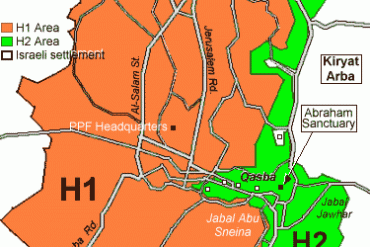A guest post by Elan Miller
First came the explosion. Then, more tellingly, the wail of the sirens. In the intervening gap of just under a minute, I stopped in my tracks, as did everyone else around. In perfect silence we listened together, hoping beyond hope that we’d heard something else.
Although I’ve been living in Israel for five and a half years, have served in the army as a combat soldier, and even been in Jerusalem at the time of other terror attacks, I still found myself shocked and indescribably raw yesterday. I had just left home to go to university (via a local synagogue so that I could pray Mincha), but as I was nearing the top of my road, I heard a distant, yet clearly very loud, explosion.
The other people around stopped in their tracks and peered down the road in the direction of the noise. Some of them immediately identified its source. “Pigu’a,” (Hebrew for terrorist attack/bombing) one or two people said after but a few seconds. Unfortunately, they were correct; it was indeed a terror attack. It’s horrible to realise that people here are so used to terrorism that they are able to so easily discern the noise made by a bomb.
Naively, I tried to convince myself that this was just another loud noise – the type that can be heard in any industrial city around the world. Someone else pointed out a crane a block away that was raising something in the air.
“I think maybe he dropped something there – that’s what the noise was.”
But the claim was contradicted seconds later by the distant wail of ambulances screeching into action. And as they got louder and ever more insistent, all doubt was removed from our minds.
I felt myself slip at once into my own world of silent depression, and simultaneously was overcome with anger and fear. My head felt heavy with the awful realisation that some unfortunate soul had been at the wrong place at the wrong time. I am sure that everyone else present felt the same way. People all around me were shocked. Although we were roughly half a kilometre away from the incident itself, everyone stopped talking. The street was eerily quiet. We only resumed to discuss in hushed tones what might have occurred.
I’m not the type to cry. I didn’t yesterday. But I feel, even now, ready to. My eyes didn’t behold the explosion or even see any smoke, but I was close enough to feel a sensation akin to taking a punch to the solar plexus. It’s horrible to think of it as such, but I have now passed through another rite of passage in Israeli life. I have now had to text my parents, and other concerned family members, to reassure them that I am alive.
Isn’t that an awful, awful reality to live in?
I continued on my way to the synagogue. The news was semi-confirmed when a concerned friend texted to ask what was happening. People on their phones sporadically filled in their fellow worshippers with more details as the minutes passed by. As the news filtered in, the injury count rose steadily from 12, to 20, upwards past 25, 30, then finally settling on somewhere between 40 and 50. And at some point, one of those injured succumbed to her injuries.
People here are tired of all the fighting. We don’t want war. We really don’t. But we are also confronted with an enemy that has repeatedly demonstrated a lack of respect for human life.
Two weeks ago, a friend of mine called Batzion wrote a note on Facebook after the brutally savage and utterly senseless murder of five Israelis, the youngest of whom was less than six months old. She explained that:
“There is one thing you cannot contest – Israeli soldiers do not murder children, and they do not target civilians… when you try to name the good guys and the bad guys, remember this. We do not murder children in their sleep. No, the murderers of children are on the other side.”
Before anyone indignantly points out that this is an over-simplified depiction of events, please note that that’s exactly what it’s supposed to be. But such a message is still relevant. Israel certainly does shoulder some of the blame for the ongoing conflict in the Middle East. No country is perfect and Israel is not an exception to that rule. Nevertheless, it is not only inaccurate, but does a grave disservice to the supposed “peace process”, if we equate Israeli actions with those of terrorists. Israel might or might not illegally occupy Arab land – and many believe that Israel’s case is actually legally sound – and it is fair to discuss whether such a policy might be helpful, but it cannot be said that this is equal to a blatantly evil act such as witnessed yesterday in Jerusalem.
Another Facebook friend, Didi, a left-wing campaigner for Palestinians, posted a quite frankly horrific status update following the attack:
“Note to Jerusalem bomber(s): Not only have you perpetrated a crime against civilians, you have also given the Status Quo Lobby a rare gift.”
On the one hand, I was hugely relieved that Didi had made an unequivocal statement against terrorism. On the other, I am deeply perturbed by the willingness to dismiss Israel’s policy of not giving land away to its enemy for free and signing a peace treaty with a people that is clearly unready for normal relations with us.
People here fervently hope for peace. But we have basic security needs and concerns. The update accused the Israeli government of exploiting terrorism for its own aims; that those who oppose making peace now are needlessly stalling for more time; that Israel is looking forward to using this as an excuse to ignore the plight of the pitiful Palestinians while we make hay.
But the truth is that terrorism isn’t an excuse; it’s the reason why we are so concerned.
Yes, it is important that we treat Palestinians with respect. But as Batzion pointed out, we have to make the distinction between the side that sees children as fair game for being killed in their sleep and the side whose army is used to attack military targets. As long as Israel has an enemy that seeks to kill civilians, we have a right to be skeptical of agreements and territorial concessions which are unlikely to actually bring peace. It would be the height of foolishness to make pretend-peace without confronting the very real differences and problems that so plague this conflict.
And first among them has to be absolute rejection of terrorism by Palestinians.
How can we expect to make peace with a people who glorify terrorism and the murder of innocents? It is not like your average Israeli doesn’t want peace. But we would be fools, nothing less than fools, if we were to ignore this stubborn reality.
Did you know that last week, a rally in Gaza attracted thousands of people to gather under one flag and demonstrate as one? No, me neither. But here’s the proof. 25,000 Gazans stood together to call for national unity. Now, if that kind of level of activism and desire is achievable, why do we not see even half as many people demonstrating against terrorism? After all, Israel regular witnesses protests against the far more contentious issue of IDF conduct against the Palestinians. Why can’t these be reciprocated?
Why do we make excuses for the continuing acceptance of terrorism against Israelis in Arab society?
No, of course not all Arabs want to see us Jews killed, but each and every Arab has a responsibility to unequivocally condemn those who do.
Without that base to build on, Israel cannot make peace, no matter how much she desperately wants to.
Not everything is in our hands.



